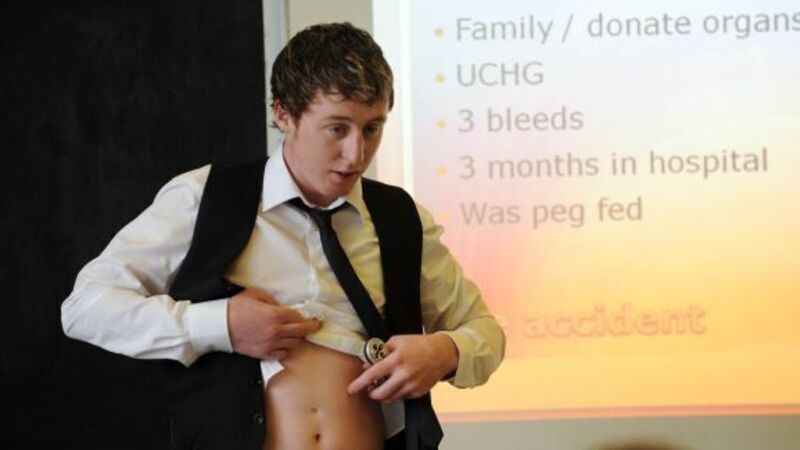Facing his past head-on

SHANE MULLINS wants to talk about mental health. Sharply dressed in dark suit and black tie, he hovers at his laptop in front of a large group of transition year students at St. Cuan’s College, Castleblakeney, Co. Galway. His fingers are poised over the keyboard. He’s waiting for silence so he can begin his presentation.
Last September, the 24-year-old Galwegian enrolled as a media studies student at GTI College in Galway. Over the course of that month, he told one of his teachers, Anne Jennings, his story. She was so moved by it that she encouraged him to tell others and he made a presentation to the class. Their reaction prompted him to take his story to a wider audience.











